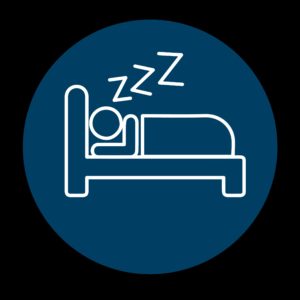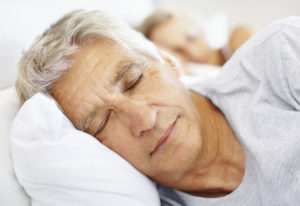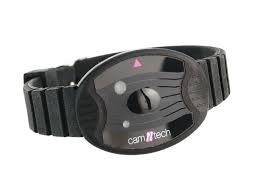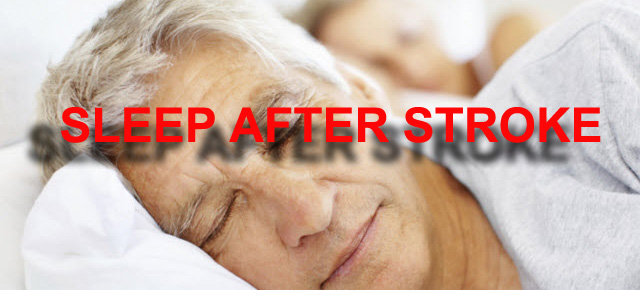Are you interested in learning about your sleep after stroke?
 Researchers at the University of Oxford are currently investigating how sleep is affected by stroke.
Researchers at the University of Oxford are currently investigating how sleep is affected by stroke.
Heidi Johansen-Berg is Professor of Cognitive Neuroscience and Director of The Wellcome Centre for Integrative Neuroimaging at the University of Oxford. There, she leads the Plasticity Group whose research focuses on how the brain changes with learning, experience, and damage.
As well as shedding light on how the healthy brain responds to change, The Plasticity Group’s work also has implications for understanding and treating disease. For example, they are currently studying how sleep can affect recovery after stroke.
Would you be interested in learning more about your sleep following stroke?
If so, The Plasticity Group are currently running a study in which you might be interested in participating – or you may know someone who is.
The aim for this study is to investigate how sleep is affected by stroke which could help to develop better sleep improvement programmes specifically for individuals after stroke.
 We know that sleep plays an important role in learning. Studies have shown that if you take two groups of people and teach them the same skill, such as juggling, then allow one group to sleep for a few hours and keep the other group awake, the sleep group will perform significantly better when retested as they have been able to consolidate the memories of learning the skill through sleep.
We know that sleep plays an important role in learning. Studies have shown that if you take two groups of people and teach them the same skill, such as juggling, then allow one group to sleep for a few hours and keep the other group awake, the sleep group will perform significantly better when retested as they have been able to consolidate the memories of learning the skill through sleep.
Learning, or re-learning, of motor skills is a key component of motor rehabilitation after stroke. If sleep is impaired following stroke then consolidation of motor skills gained through physical rehabilitation may be diminished. Therefore, finding out about how sleep is affected by stroke could help us to develop better rehab outcomes following stroke.
 The current study involves coming to a research centre in Oxford for one session to complete a couple of motor assessments with the upper limbs and to answer a couple of questionnaires about your sleep and mood. Then researchers will set you up with a pair of sleep monitoring wrist watches for you to wear for a week with a simple sleep diary asking what times you go to bed and get up each day.
The current study involves coming to a research centre in Oxford for one session to complete a couple of motor assessments with the upper limbs and to answer a couple of questionnaires about your sleep and mood. Then researchers will set you up with a pair of sleep monitoring wrist watches for you to wear for a week with a simple sleep diary asking what times you go to bed and get up each day.
There has been limited work with stroke survivors and sleep so researchers at the University of Oxford are currently looking for people who have difficulty using their hand/arm after a stroke to take part in this study to see how recovery after stroke is related to sleep.
 If you would like to join this study/find out more, please feel free to contact the researchers:
If you would like to join this study/find out more, please feel free to contact the researchers:
Mr Tom Smejka: thomas.smejka@ndcn.ox.ac.uk
Dr Melanie Fleming: melanie.fleming@ndcn.ox.ac.uk
Professor Heidi Johansen-Berg: heidi.johansen-berg@ndcn.ox.ac.uk
CALL 01865 611461




5 Comments
My husband had a severe stroke in November 2014. He has aphasia and cannot use his right arm. He walks with the aid of a stick but has chronic post stroke pain down his affected side. He sleeps for between 2 and 3 hours every afternoon and goes to bed at about 9.30 sleeping until about 8.30.
I had a stroke in may2014 and had severe problems with sleeping for about5 years following the stroke until I stopped taking a daily statin , when my sleep pattern improved significantly I have had real difficulties regaling function in my affected arm/hand but have successfully learned to walk again and am quite mobile
I had stroke 2010 initially I slept well but now have trouble sleeping through the night usually wake about3am I have very limited movement in my left arm and nothing in my hand left leg is still weak butvcan walk with aid of a tripod
My hubby had his stroke 2009 age 64 on left side right side paralysed he sleeps every afternoon 1pm till 4pm
Then bed 10pm till 7am he had very bad aphasia & still effected cant do numbers difficulty in speech although some improvement in that area & has memory issues
My CVA was 9 years ago and my recovery is 95 % . I only have a little weakness now in my left arm/hand .. my biggest problem is sleeping .. I don’t have any trouble going to sleep it’s staying asleep .. this is every night